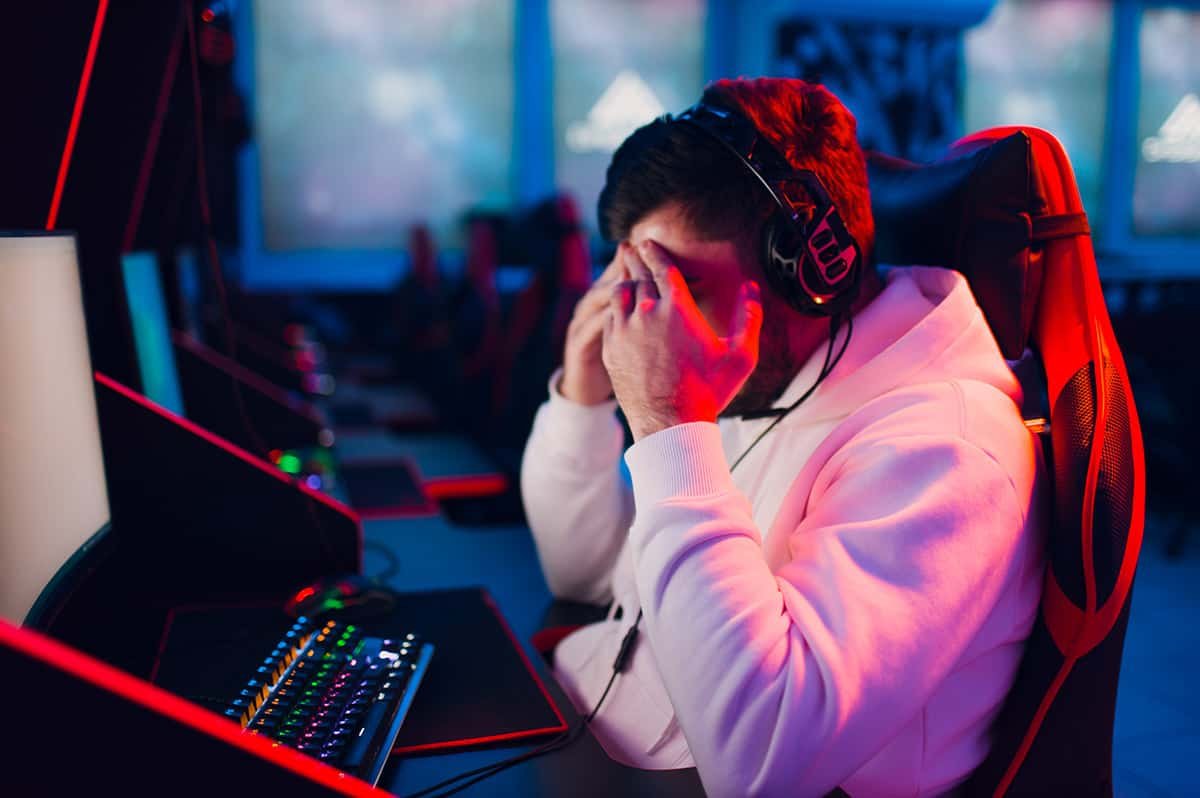Playing video games is a fantastic way to relax and have fun, but it’s important to recognize when you need a break. Gaming fatigue is real, and it can affect both your enjoyment of the game and your overall well-being. In this article, we’ll share some practical ways of avoiding gaming fatigue, so you can keep enjoying your favorite hobby without burning out. Remember, it’s all about balance and making sure that your gaming sessions remain fun and refreshing.
1. Take Regular Breaks
One of the simplest ways of avoiding gaming fatigue is by taking regular breaks. It can be tempting to play for hours on end, but your mind and body need rest. Try following the 20-20-20 rule: every 20 minutes, take a 20-second break and look at something 20 feet away. This quick break can help reduce eye strain and prevent your mind from becoming too focused on the game.

2. Stay Hydrated
Staying hydrated is essential for your overall health and can also help in avoiding gaming fatigue. Dehydration can lead to headaches, fatigue, and decreased concentration, all of which can ruin your gaming experience. Keep a bottle of water nearby and sip regularly while you play to stay refreshed and alert.
3. Mix Up Your Games
Playing the same game for extended periods can lead to boredom and fatigue. To keep things fresh and exciting, try mixing up your games. Switch between different genres or try out a new game that you haven’t played before. This variety can help in avoiding gaming fatigue by keeping your mind engaged and entertained.
4. Adjust Your Gaming Setup
Your gaming environment plays a big role in how comfortable you feel during extended gaming sessions. Make sure your chair is ergonomic and provides good support, and adjust your monitor to eye level to prevent neck strain. Additionally, ensure that your room is well-lit to reduce eye strain. A comfortable setup can go a long way in avoiding gaming fatigue.
5. Set Time Limits
Setting time limits for your gaming sessions is another effective way of avoiding gaming fatigue. Decide how long you want to play before you start, and stick to that limit. This helps prevent burnout and ensures that you’re not spending too much time in front of the screen. Setting an alarm or reminder can help you keep track of your gaming time.
6. Practice Good Posture
Good posture is crucial in avoiding gaming fatigue. Sitting in a slouched or awkward position for long periods can lead to back pain, neck strain, and fatigue. Make sure you’re sitting upright with your feet flat on the floor and your back supported. Taking a moment to adjust your posture can make a significant difference in how you feel during and after your gaming session.
7. Get Enough Sleep
Lack of sleep is one of the biggest contributors to gaming fatigue. It’s easy to lose track of time when you’re engrossed in a game, but staying up late can leave you feeling drained the next day. Prioritize getting enough sleep each night to ensure that you’re well-rested and ready for your next gaming session. A well-rested mind and body are key in avoiding gaming fatigue.
8. Incorporate Physical Activity
Incorporating physical activity into your routine is another great way of avoiding gaming fatigue. Even a short walk or a few minutes of stretching can boost your energy levels and improve circulation, helping you feel more alert and focused. Consider taking a break between gaming sessions to move around and get your blood flowing.
9. Stay Social
Gaming doesn’t have to be a solitary activity. Playing with friends or engaging with the gaming community can make the experience more enjoyable and less tiring. Sharing your gaming experiences, strategies, and challenges with others can add a social element that keeps things fun and helps in avoiding gaming fatigue.
10. Listen to Your Body
Finally, the most important tip for avoiding gaming fatigue is to listen to your body. If you start feeling tired, unfocused, or irritable, it’s a sign that you need a break. Don’t push yourself to keep playing if you’re not enjoying it. Taking a break, resting, and coming back to the game later can help you feel more refreshed and ready to enjoy the game again.
Conclusion
Avoiding gaming fatigue is all about balance. By taking breaks, staying hydrated, mixing up your games, and listening to your body, you can enjoy your gaming sessions without feeling burnt out. Remember, gaming should be fun and relaxing, not something that leaves you feeling drained. Use these tips to keep your gaming experience enjoyable and avoid the fatigue that can come with too much screen time.




